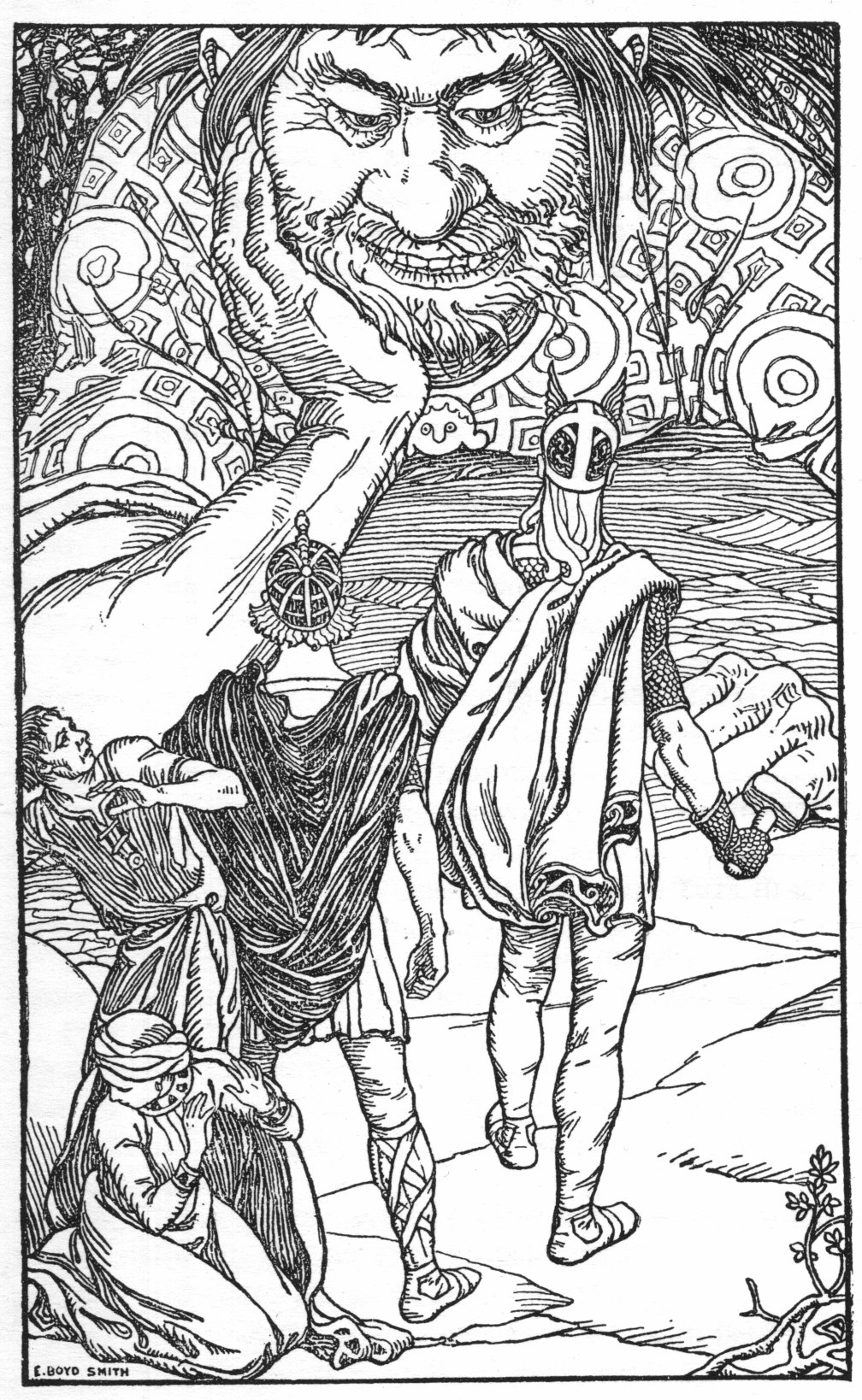Þjálfi and Röskva
 In Norse mythology, Þjálfi (Old Norse: ) and Röskva (O.N.: ), also known as Thjalfi and Roskva, are two siblings, a boy and a girl, respectively, who are servants of the god Thor. Þjálfi receives a single mention in the ''Poetic Edda'', compiled in the 13th century from earlier traditional material, while both Þjálfi and Röskva are attested in the ''Prose Edda'', written in the 13th century by Snorri Sturluson and in poetry of skalds.
In Norse mythology, Þjálfi (Old Norse: ) and Röskva (O.N.: ), also known as Thjalfi and Roskva, are two siblings, a boy and a girl, respectively, who are servants of the god Thor. Þjálfi receives a single mention in the ''Poetic Edda'', compiled in the 13th century from earlier traditional material, while both Þjálfi and Röskva are attested in the ''Prose Edda'', written in the 13th century by Snorri Sturluson and in poetry of skalds.In the ''Poetic Edda'', Thor recounts an incident where Þjálfi is chased away by she-wolves but gives no additional information about him. In the ''Prose Edda'', Þjálfi and Röskva are the children of peasant farmers. Thor and Loki stay a night at their farmstead and there Thor shares with the family the meat of his goats, Tanngrisnir and Tanngnjóstr, which he can resurrect provided that their bones are intact. Þjálfi sucks the marrow from a leg bone from one of the goats. When Thor resurrects the goats the next morning, he finds that one of the goats is lame in the leg and becomes enraged. As a result, Thor maintains Þjálfi and Röskva as his servants.
From the farm, Thor, Loki, Þjálfi, and Röskva head out to a vast forest in the realm of Jötunheimr. They spend the night in a building that turns out to be the glove of an immense being, Skrymir. The next night, Thor finds that he is unable to kill Skrymir, and the group sleeps in fear beneath an oak. The following day the group arrives at Útgarða-Loki's keep and Útgarða-Loki has each member (excluding Röskva) perform a feat to gain boarding. Each member who performs a feat loses, including Þjálfi, who thrice loses a race against a figure named Hugi.
After the group spends the night at the keep, Útgarða-Loki reveals that he was in fact Skrymir and that Thor actually nearly killed him. Similarly, the contests were not as they seemed; Þjálfi, for example, raced against thought itself (''Hugi'' meaning "thought" in Old Norse). Útgarða-Loki notes that he and the inhabitants were terrified at what the group was able to achieve, and that they must part. Útgarða-Loki and his keep disappear. Provided by Wikipedia
-
1